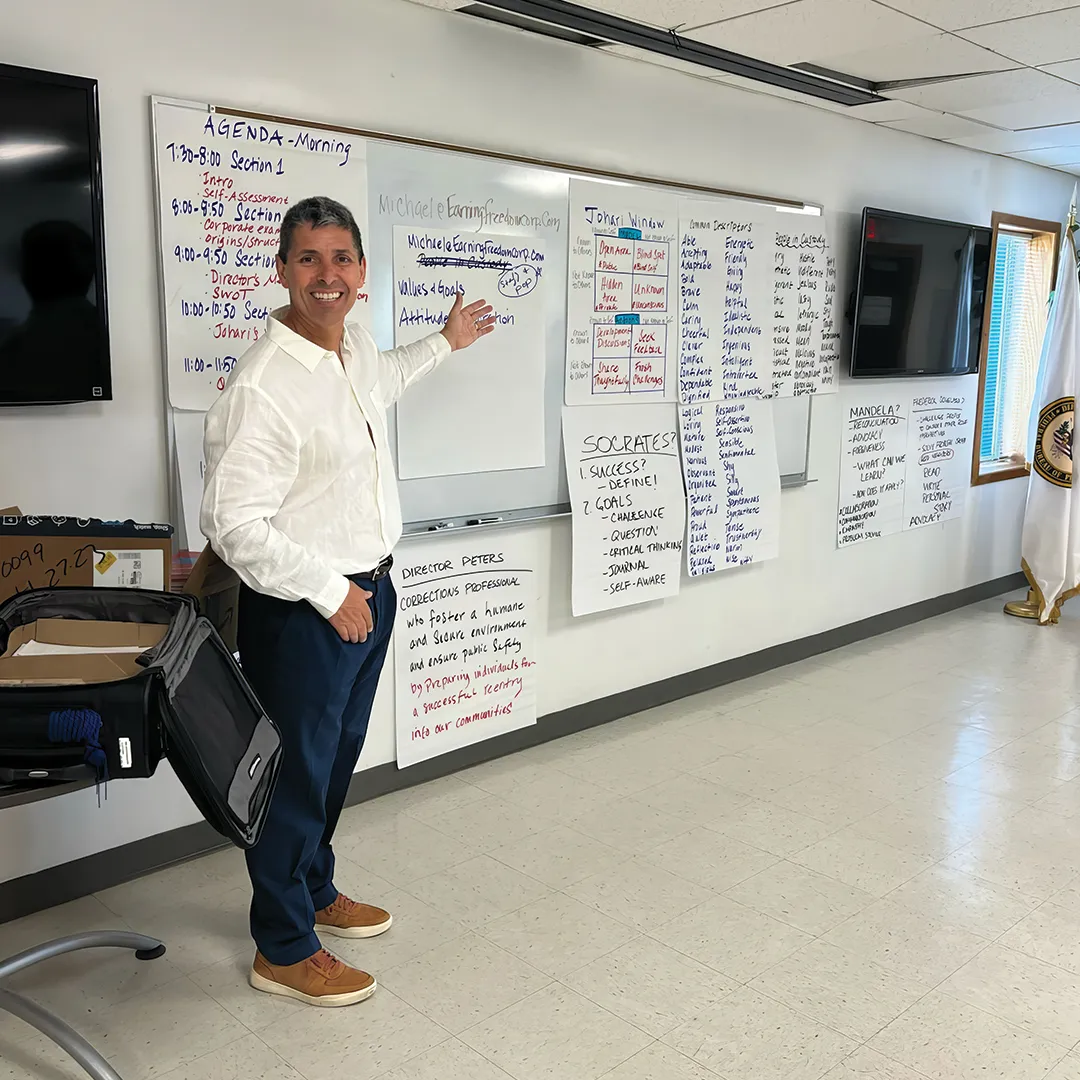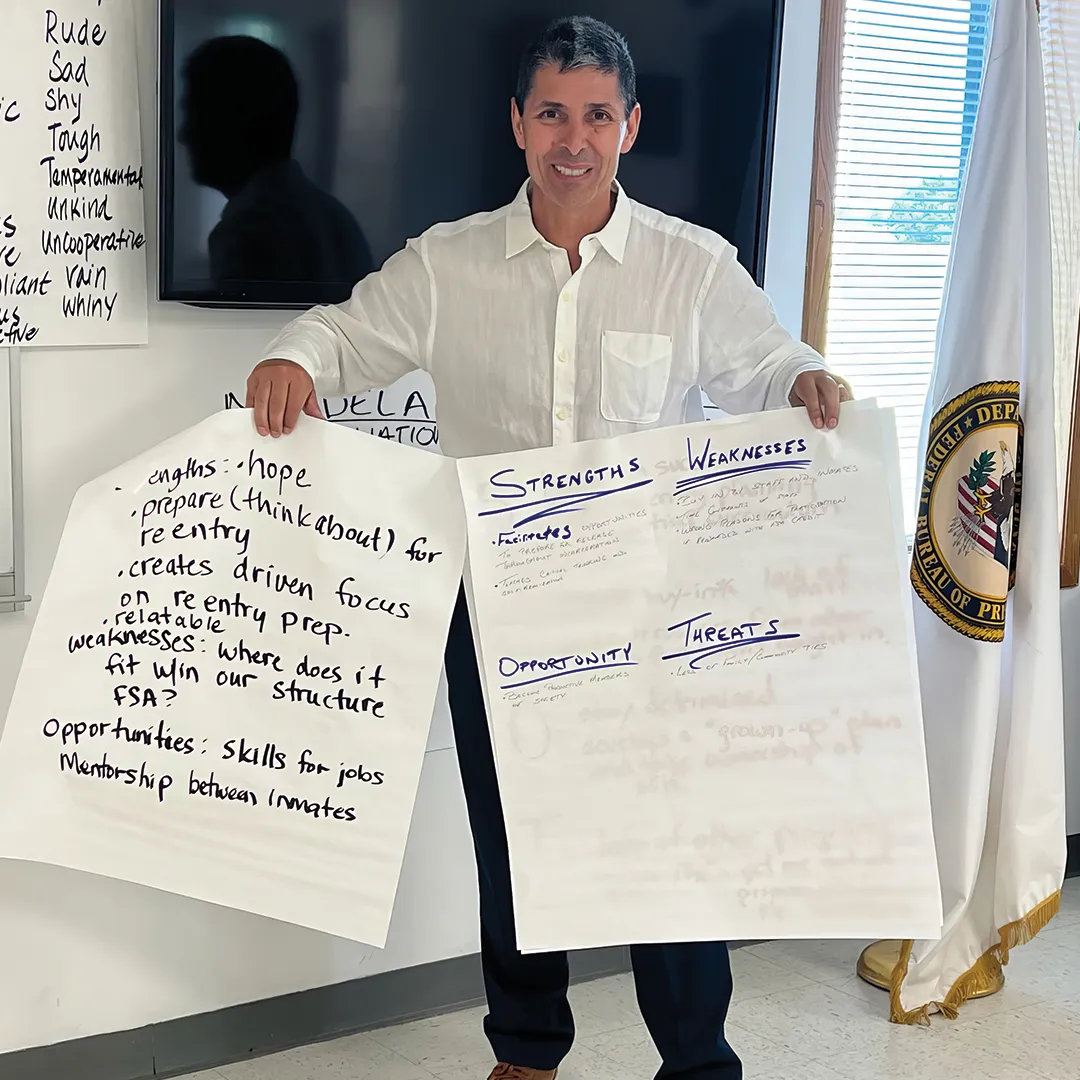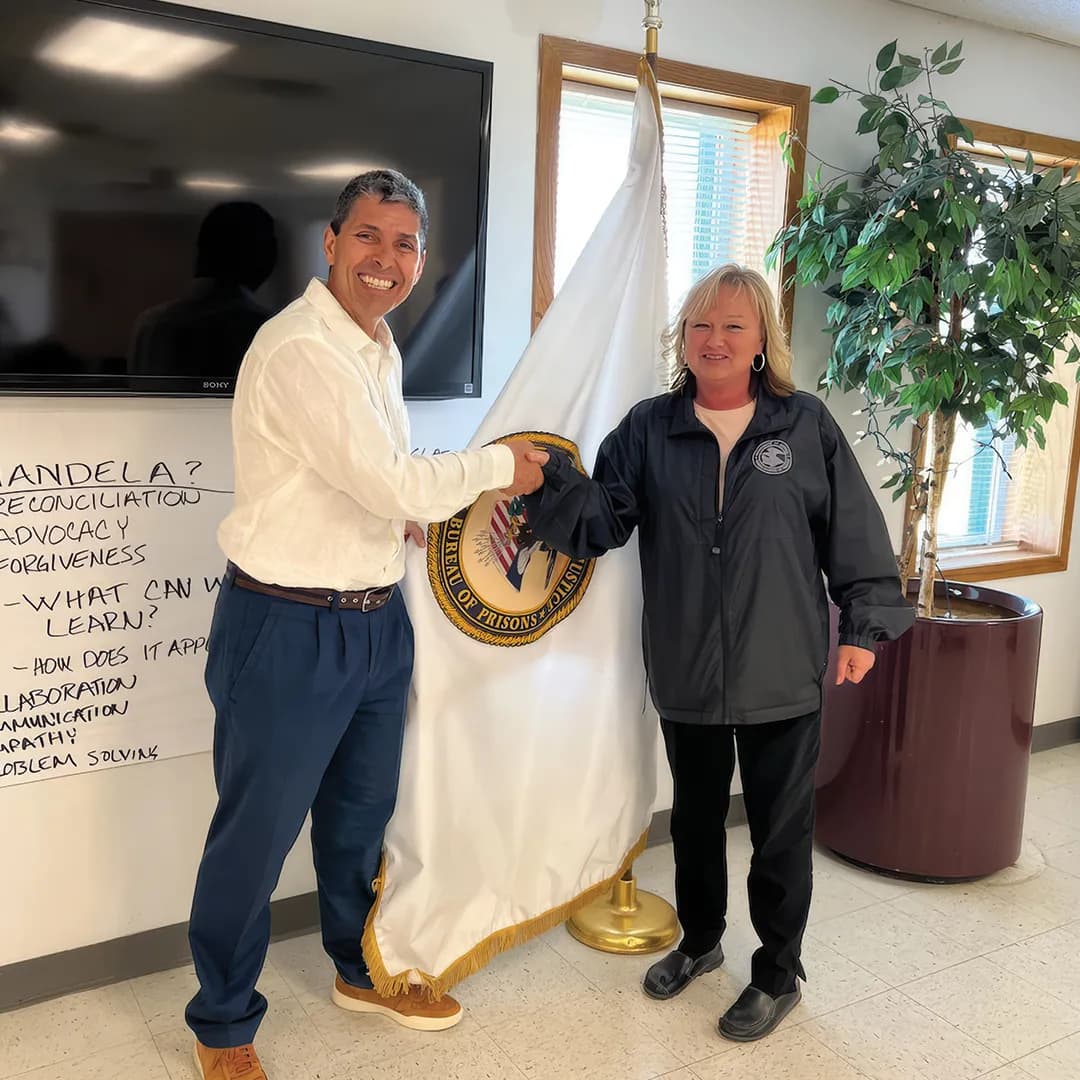
Advocacy work requires our team at Prison Professors to sow a lot of seeds. Whether I’m speaking to people about to enter prison or presenting inside facilities, the message is the same: if we don’t measure progress, progress doesn’t exist. We have to memorialize the journey—in writing, consistently—so growth is visible, credible, and useful to decision-makers.
That’s why I value the chance to train staff. People serving sentences need tools and hope. Staff members need clear reasons and practical methods to influence adjustment in pro-social ways. When both groups work from the same playbook, outcomes improve.
The Officer Who Changed My Thinking
Early in my sentence, I sat in solitary confinement for a year, while I went through judicial proceedings. A jury convicted me on all counts. I hadn’t been a good student in high school. But facing life in prison made me open to learning from people who had endured hardship and rebuilt.
A correctional officer—Officer Wilson—brought me books that changed my life: the autobiography of Frederick Douglass, Plato’s Republic, Viktor Frankl’s Man’s Search for Meaning, and others. Those books gave me a framework to craft a plan that carried me through 9,500 days in prison. One staff member, offering the right tools at the right moment, permanently altered my trajectory.
That experience is why I jump at every opportunity to participate in staff training opportunities. It’s another part of advocacy. Rather than extinguishing hope, staff can spark it—and that spark can compound for years.

A Full Day of Training in Greenville
At FCI Greenville (IL), I spent a full day training staff. My wife, Carole, joined me. Teams traveled in from Greenville, Terre Haute, Marion, and Leavenworth. We focused on simple practices that make a measurable difference:
- Define excellence locally. Translate agency goals into daily behaviors people can practice and staff can observe.
- Cue documentation. Encourage biographies, journals, book reports, and release plans—records that show preparation, discipline, and growth.
- Reinforce “CEO of your life.” Ask people to set goals, plan actions, and reflect on results; repeat the cycle weekly.
- Reward visibility. Highlight individuals who document progress; model how documentation reduces noise and increases signal for reentry decisions.
- Partner on momentum. Staff reminders, prompts, and recognition are force multipliers; small nudges compound over time.
Step by step, these are the seeds we must sow to bring the change we want to see.
Why Documentation Matters: Profiles and Leaderboards
At Prison Professors, we built profiles so people can memorialize their work:
- Biography (identity and purpose)
- Journal (daily discipline and reflection)
- Book Reports (evidence of learning)
- Release Plan (goals, timelines, accountability)
Entries earn points and appear on a leaderboard. The result is transparency: a body of evidence that shows who is doing the work. I use those leaderboards—and the stories behind them—to help BOP leaders and staff see the value of incentivizing excellence. The more people document their preparation, the stronger the case for policy pathways that reward merit.
A Message for Staff—and for People in Prison
- To staff: Your influence is real. A word of encouragement, a reading suggestion, a request to see a weekly journal—these small actions can redirect years of a person’s life.
- To people in prison: Don’t wait. Start documenting today. If you want better outcomes—halfway house, home confinement, strong supervision performance, early termination—show it in writing. Build your profile. Make your growth visible.
I’m grateful to the Greenville leadership and every staff member who invested their time in training. Carole and I left encouraged. This work is incremental, but it’s powerful. One officer once handed me a book and changed the course of my life. Together, we can multiply that impact—one prompt, one profile, one measured step at a time.

